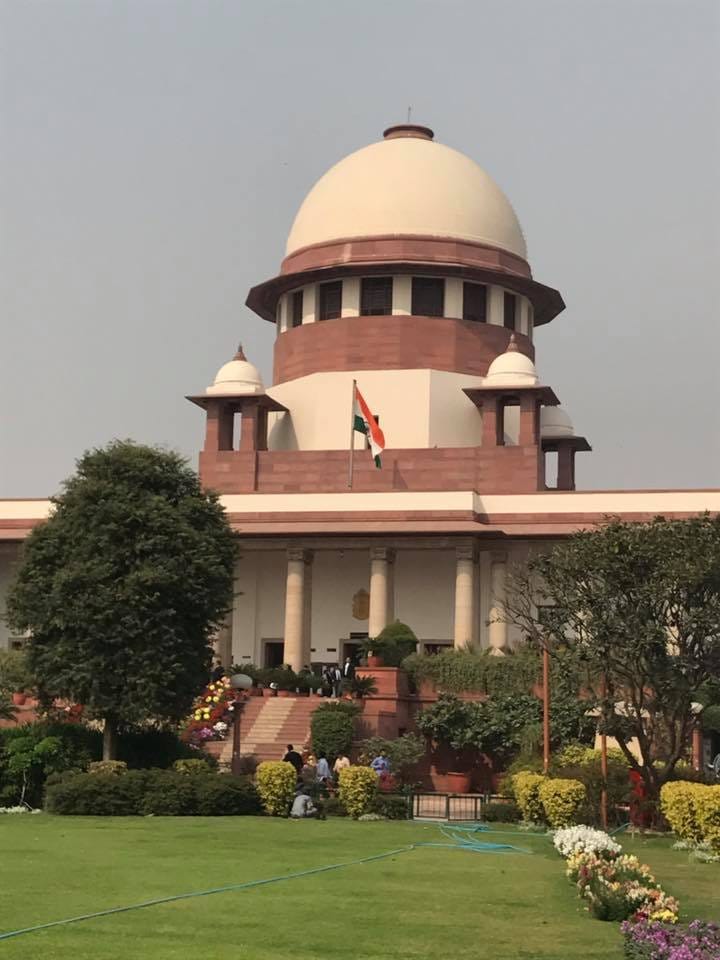Decoding the Supreme Court’s 22 August Order on Stray Dogs: A Fair, Just and Equitable Respite
Supreme Court order of 22 August 2025: what it says, how it works, and where both sides stand
Author credentials:
Karan Bir Singh Sidhu is a retired IAS officer (Punjab cadre) and former Special Chief Secretary to the Government of Punjab. He writes on public safety and the equitable balance between human rights and the rights of community dogs.
The 22 August judgment — what changed and why
On 22 August 2025, a three-judge Bench modified its earlier interim directions on managing stray dogs. Balancing public safety with the Animal Birth Control (ABC) Rules, 2023, the Court held that treated dogs must ordinarily be returned to their original localities after sterilisation, deworming and vaccination. Only rabid, suspected-rabid, or demonstrably aggressive dogs are to be withheld from release and housed separately after treatment. In short, a blanket “no-release” policy has given way to a calibrated, rule-compliant approach.
Operational and operative directions (nine points, in two lines each)
Continue pick-ups and build capacity. Municipal bodies must keep rounding up strays and, in parallel, create and notify shelters/pounds. The previously fixed eight-week timeline for reporting infrastructure creation remains.
Treat-and-return is the default; clear exceptions. After sterilisation, deworming and vaccination, dogs are to be released back into the same area. Rabid/suspected-rabid and aggressive dogs are not to be released and must be kept in separate facilities.
Simultaneous operations, subject to the above. The drive to pick up dogs and expand infrastructure proceeds together. All field operations must honour the treat-and-return default and the stated exceptions.
Designated feeding zones, not public thoroughfares. Each municipality must demarcate signed feeding spaces in every ward, scaled to local populations. Feeding on streets or in general public places is prohibited and enforceable.
Dedicated helpline for violations. Municipal authorities must set up a helpline to receive complaints about non-compliance (for example, feeding outside designated zones). Swift, proportionate action is expected.
No obstruction of officials. Anyone hindering authorised personnel implementing these directions may be prosecuted for obstructing a public servant in the discharge of duty. Enforcement is to be firm but lawful.
Security deposits by applicants. Individual applicants must deposit ₹25,000; NGOs ₹2,00,000, within seven days. Non-payment bars further participation; the funds will support dog-welfare infrastructure.
Adoption pathway. Animal-lovers may apply to adopt identified street dogs, which will be tagged and handed over through due process. Adopters must ensure these dogs do not return to the streets.
Compliance affidavit and resource audit. Municipalities must file affidavits detailing shelters/pounds, veterinarians, dog-catching staff, and modified vehicles/cages. This creates a baseline for monitoring and further orders.
What happens next
Recognising that ABC Rules apply nationally, the Apex Court has called in all States and Union Territories to disclose measures for compliance. Similar matters pending across High Courts are to be identified for transfer, and the case will be taken up after eight weeks to review affidavits and fine-tune directions.
The two “extreme” viewpoints — in brief
Animal-welfare/feeder side. They contend that any blanket ban on release violates the ABC framework, risks unlawful culling by over-stretched municipalities, and has led to harassment of feeders. In their view, humane, scientific management reduces conflict and disease over time.
Public-safety/anti-stray side. They stress high bite numbers and rabies risk, especially for children and the elderly, arguing that sterilisation alone cannot prevent attacks by aggressive dogs. Their priority is an immediate, visible reduction of street-level threats.
Our op-ed view
a.) Security deposits and accountability
One part of the 22 August order that stands out is the requirement of security deposits: ₹25,000 from individual applicants and ₹2,00,000 from NGOs, failing which they cannot continue in the case. The Court has directed that these funds be channelled into municipal dog-welfare infrastructure. This is especially pertinent—activists must put their money where their mouth is. It is not the amount itself that matters, but the principle that those championing a cause must also share the financial cost of activism, particularly when it implicates public safety and the risk to ordinary citizens on the streets.
b.) Cooling tempers, restoring balance
Since the matter will now come up only after eight weeks, and no precipitate action has been enjoined in the meantime, one can hope this pause will cool frayed tempers. It may also help replace the cantankerous noise matches in public spaces with more civil debate, guided by law and reason rather than rancour.
c.) A fair, just and equitable reset
The modified order is now fair, just and equitable. It restores fidelity to the ABC Rules by reinstating treat-and-return as the default, while carving out narrow, evidence-based exceptions for rabid and aggressive dogs. It moves feeding into managed zones to reduce conflict in public spaces, builds accountability through helplines, prosecution for obstruction, and compliance audits, and extends the framework nationwide beyond the NCR. In place of a blunt instrument, the Supreme Court, in all its sagacity and wisdom, has crafted a principled, workable balance that safeguards both human safety and humane management of street dogs.



Supreme Court should have set little more stringent timelines for the municipalities, particularly those in big metros. It is a very normal way of working for govt agencies, that if you give them a target of 10 things in 3 months, they'll do only 3-4 and will ask for more time. The current guidelines are very subjective and allow plenty of room for the officials to interpret in a way convenient to them. Earlier order, could have set the business in motion in a serious way, this amendment has diluted the intensity, and it will drag the matter to few more years.